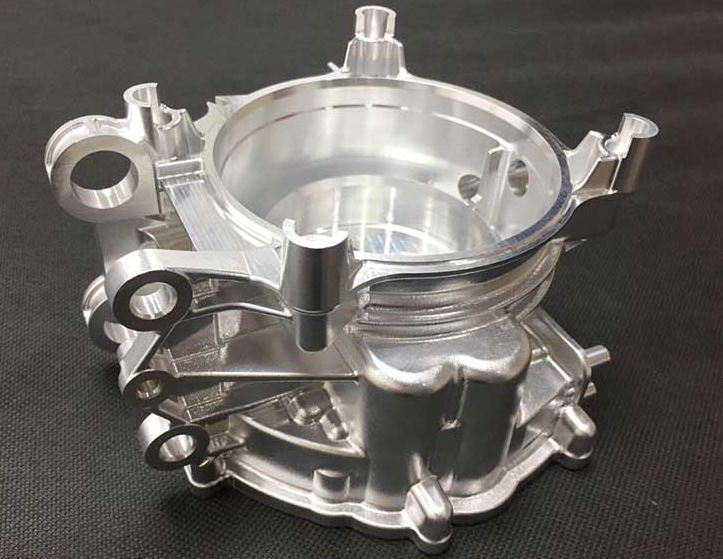Stahl Specialty Company Can Be Fun For Everyone
Table of ContentsThe Ultimate Guide To Stahl Specialty CompanyStahl Specialty Company Fundamentals ExplainedThe smart Trick of Stahl Specialty Company That Nobody is Talking AboutThe Best Strategy To Use For Stahl Specialty Company7 Simple Techniques For Stahl Specialty Company
There are many minor distinctions in between wrought and cast aluminum alloys, such as that actors alloys can contain more considerable amounts of other metals than wrought alloys. The most noteworthy difference between these alloys is the fabrication procedure via which they will certainly go to supply the last item. Other than some surface treatments, cast alloys will certainly leave their mold and mildew in nearly the precise solid form desired, whereas wrought alloys will undergo several modifications while in their solid state.If you believe that a wrought alloy may be the very best for your job, have a look at a few of our short articles that explain more regarding specific functioned alloys, such as Alloy 6061 and Alloy 6063. On the other hand, if you assume a cast alloy would certainly be better for you, you can find out a lot more about some actors alloys in our Alloy 380 and Alloy 383 short articles (coming quickly).

Having the experience and market understanding to craft your spreadings for optimum manufacturing and quality outcomes will enhance the task. Making light weight aluminum spreading requires a complex set of processes to attain the right results. When picking a new aluminum foundry to partner with, ensure they have extensive industry experience and are knowledgeable about all aspects of the aluminum spreading procedure: style, manufacturing, material analysis, and product testing.
The Only Guide to Stahl Specialty Company
The shop must also have a tried and tested track record of providing extraordinary items that satisfy or go beyond consumer expectations. Quality control needs to also be at the top of your listing when picking a light weight aluminum foundry. By functioning with a qualified shop who adheres to the requirements for quality control, you can secure the integrity of your item and ensure it fulfills your specifications.
By picking a company that offers solutions that meet or exceed your item requirements, you can be certain that your task will be finished with the utmost accuracy and performance. Specific light weight aluminum foundries focus on specific types of making processes or casting techniques. Various parts need various production techniques to cast aluminum, such as sand casting or pass away casting.

Die spreading is the name offered to the process of producing intricate steel parts through use of mold and mildews of the part, likewise understood as dies. It produces more components than any other process, with a high level of precision and repeatability. There are 3 sub-processes that drop under the group of die spreading: gravity pass away spreading (or irreversible mold and mildew spreading), low-pressure die spreading and high-pressure die spreading.
After the purity of the alloy is tested, passes away are produced. To prepare the dies for casting, it is important that the passes away are tidy, so that no residue from previous productions remain.
The pure metal, also called ingot, is added to the furnace and maintained at the molten temperature of the metal, which is after that transferred to the shot chamber and injected right into the die. The pressure is after that preserved as the metal strengthens - Foundry near me. Once the steel solidifies, the cooling procedure begins
The thicker the wall surface of the part, the longer the cooling time as a result of the quantity of interior steel that also requires to cool. After the element is fully cooled down, the die halves open and an ejection system pushes the element out. Following the ejection, the die is shut for the next shot cycle.
The Best Strategy To Use For Stahl Specialty Company

Today, top makers utilize x-ray testing to see the whole interior of parts without cutting right into them. To get to the finished item, there are three main alloys used as die spreading material to select from: zinc, aluminum and magnesium.
Zinc is one of the most secondhand get redirected here alloys for die spreading due to its lower expense of raw products. Its corrosion resistance likewise permits the components to be long long-term, and it is one of the more castable alloys due to its reduced melting factor - aluminum metal casting.
Rumored Buzz on Stahl Specialty Company
As discussed, this alloy is among one of the most generally made use of, yet makes will, sometimes, pick light weight aluminum over zinc as a result of light weight aluminum's production benefits. Light weight aluminum is extremely cost-effective and among the a lot more flexible alloys. Aluminum is used for a number of different items and sectors anything from home window structures to aerospace products.